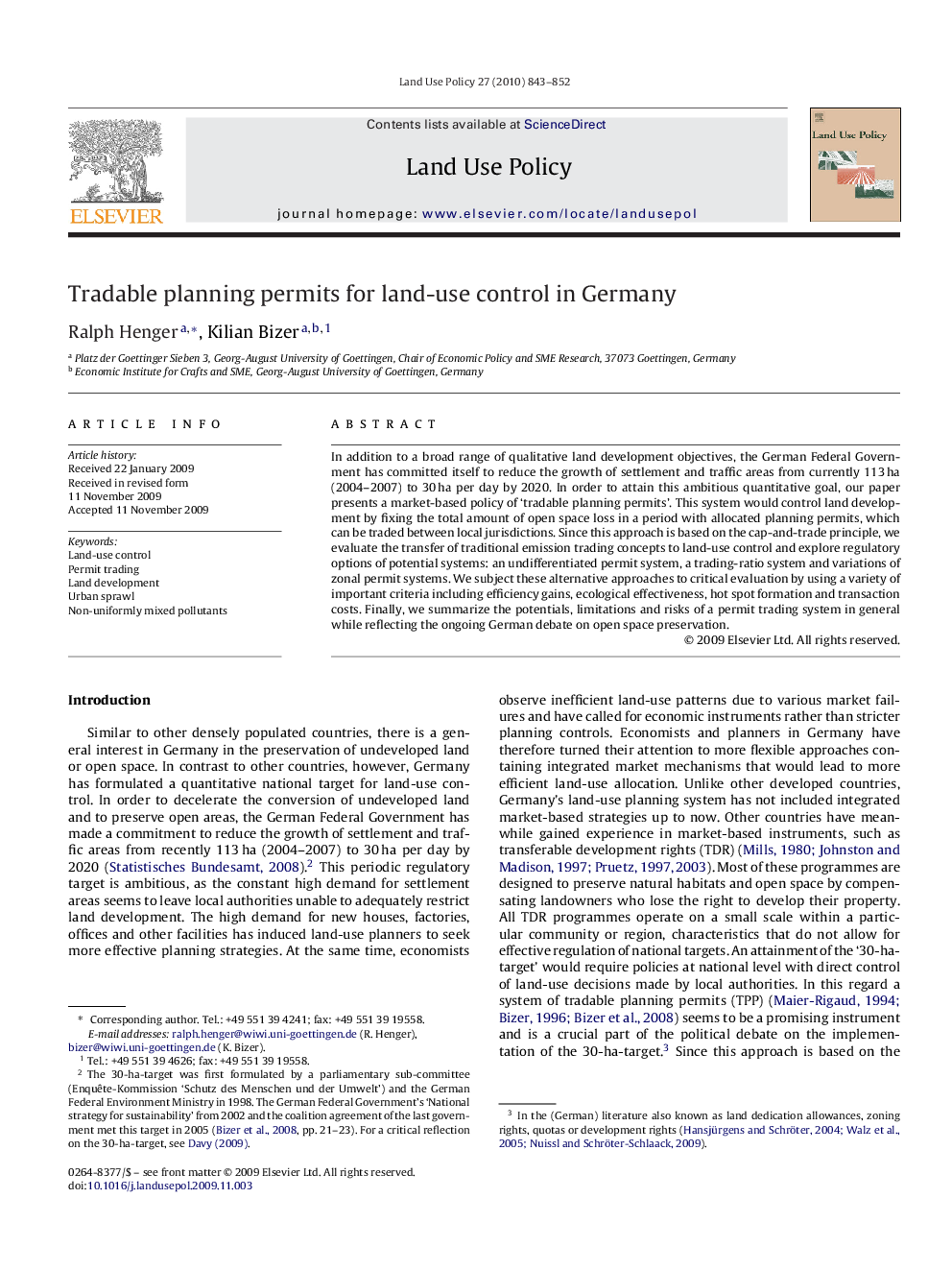| Article ID | Journal | Published Year | Pages | File Type |
|---|---|---|---|---|
| 10251762 | Land Use Policy | 2010 | 10 Pages |
Abstract
In addition to a broad range of qualitative land development objectives, the German Federal Government has committed itself to reduce the growth of settlement and traffic areas from currently 113Â ha (2004-2007) to 30Â ha per day by 2020. In order to attain this ambitious quantitative goal, our paper presents a market-based policy of 'tradable planning permits'. This system would control land development by fixing the total amount of open space loss in a period with allocated planning permits, which can be traded between local jurisdictions. Since this approach is based on the cap-and-trade principle, we evaluate the transfer of traditional emission trading concepts to land-use control and explore regulatory options of potential systems: an undifferentiated permit system, a trading-ratio system and variations of zonal permit systems. We subject these alternative approaches to critical evaluation by using a variety of important criteria including efficiency gains, ecological effectiveness, hot spot formation and transaction costs. Finally, we summarize the potentials, limitations and risks of a permit trading system in general while reflecting the ongoing German debate on open space preservation.
Related Topics
Life Sciences
Agricultural and Biological Sciences
Forestry
Authors
Ralph Henger, Kilian Bizer,
